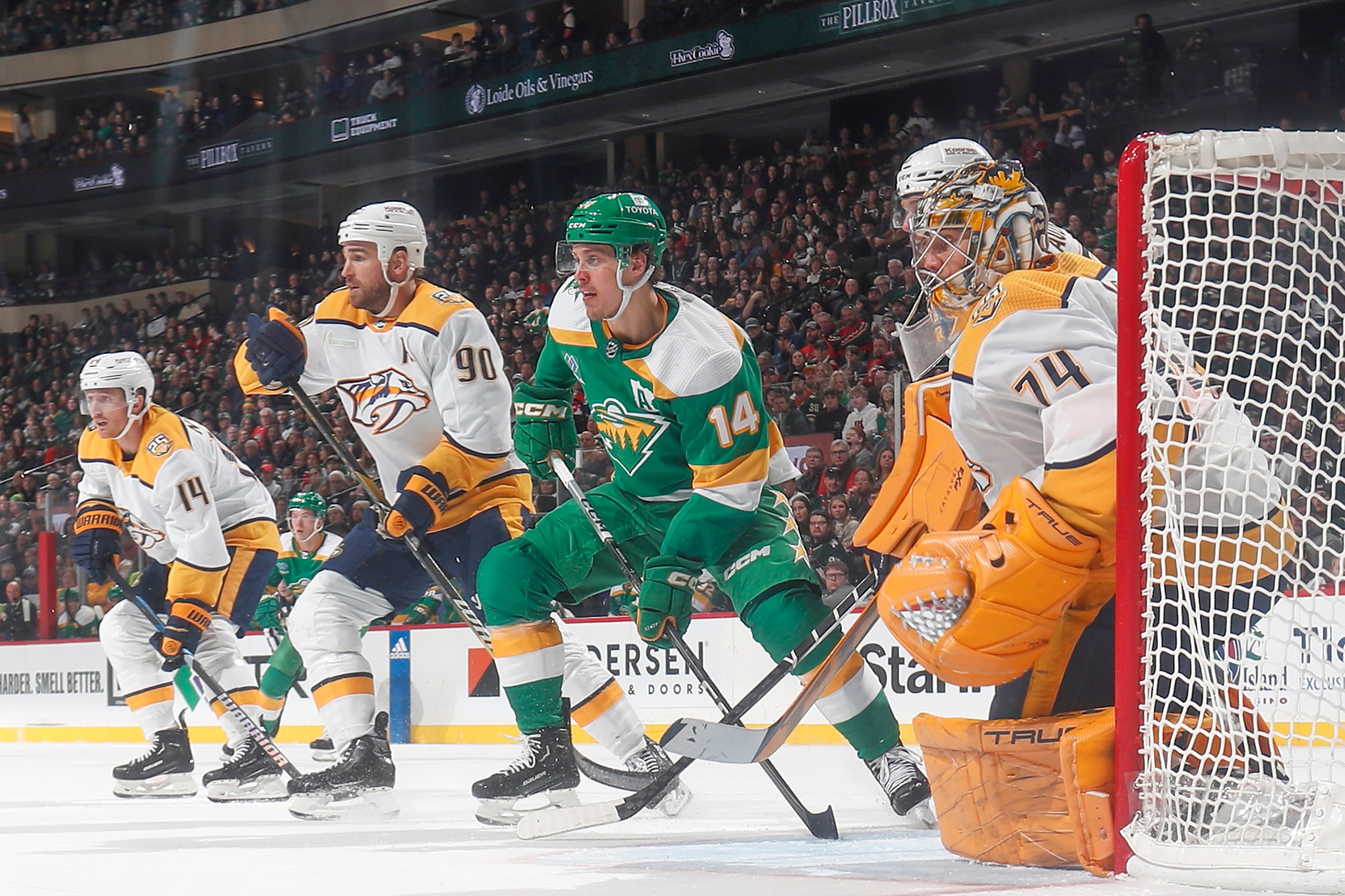From the moment Ryan O'Reilly scored for Nashville to tie the game with two minutes remaining in regulation, the Minnesota Wild were desperate. They needed points. Not a point. Points! They entered Sunday's game eight points back of Vegas for the West's last wild card and 10 back of the Predators, and with Vegas re-arming at the trade deadline, the schedule dwindling, and the Wild's playoff odds sitting below 10 percent, only a winning streak will do. No overtime losses, because the loser point is for losers. “We need two points,” head coach John Hynes said. "One point, zero points, it’s not doing us any good. Two points is what we need.”
So as the extra frame wore on and things looked to be headed to the coin-flip of a shootout, Hynes reached into his bag of tricks and pulled something I've never seen before in overtime: his goalie.
It only took a few seconds for the extra attacker—a fourth forward—to pay off, as Matt Boldy scored the winner to give Minnesota that sweet, delicious, precious second point. Points!
Ah, but this was even bolder than it appeared at first glance. If the Wild had conceded a goal with the empty net—an outcome more than twice as likely as them scoring—they would have forfeited the point they received for getting to overtime.

I'll be honest with you: I was a little tempted to play the role of the all-knowing blogger and act like I knew about this rule. Oh, Rule 84.2. Yeah. Everyone knows that one. But no. I'd never heard of this in my damn life. And it adds a new level of chutzpah to the decision to yank Fleury—the Wild weren't just risking a chance to win in a shootout; they were risking everything. Perhaps it's for the better that Wild players, as they admitted afterward, didn't know about the rule either.
"To be completely honest, I thought that we were drawing it up in case we got a power play, so that's how out of the loop I was," said Marcus Foligno. Added Boldy: "Good thing we scored."
The rule is a relic of the pre-lockout era, when ties were still possible, and it makes sense in that context: If you're staring down a draw, which pointswise is the same as a loss, why wouldn't you pull the goalie and increase your chances for two? Without the rule, every overtime period might have devolved into empty nets on either end of the ice—a very different game and not one the NHL cared to see.
Now in the shootout era, the rule is mostly vestigial—I'm not sure the math would endorse the Wild taking the risk of giving up an empty-netter vs. his chance of winning a shootout, even with the added benefit of denying Nashville a second point—but I'm glad it's still there. Without it, we wouldn't now know that Hynes is daring to the point of recklessness, or be able to admire him for it. And it's always nice to learn new things.






